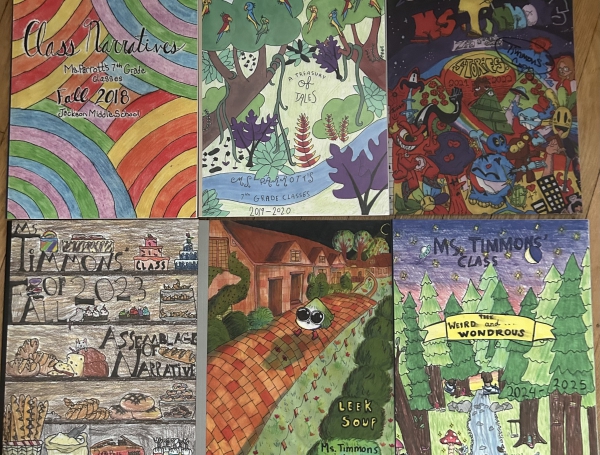

Helping Students Become Independent Readers: Inspired by Three Teachers Talk
March 29, 2023
I opened my reading notebook to see which students I would conference with today. I sighed. Scott was not enjoying reading. He wasn't alone. The class of twenty seniors in the general English class that was co-taught with a special education teacher were mostly going through the motions for graduation. Becoming lifelong readers was not high on their priority lists. My conversations with Scott were always tense. When I walked toward his desk during the ten minutes of reading, I noticed he's still choosing his history textbook. I often start conferences with questions like How's your reading going? or What have you been reading lately? He usually makes it clear how he feels. I hate reading. I'm not going to read after school. Every couple of weeks, I ask him questions about reading. Because he reads his history textbook in class, I ask if he would like books about historical events. The WW2, War, and Survival sections of my classroom library are popular. No. Who are some of his friends? I flip to their pages in the notebook to make suggestions from what they're reading. Not interested. He plays baseball. Maybe he'd like books about sports. Nothing. His response is always the same. I hate reading. And I usually end with You just haven't found the right book yet! Can you see his eyes rolling?
I didn't always teach reading this way, but I knew the moment that my approach changed. At the annual convention for the National Council of Teachers of English, I chose a session about teaching reading at the high school level. I should have known something was up when I opened the door and saw a large conference room with hardly any seats left. Three teachers were about to present about emphasizing independent reading and student choice in the English classroom. Penny Kittle (Who's that? I didn't know.) introduced them. The presenters shared their transformations after reading Penny Kittle's books and attending a workshop with her. They talked about how their students, including inner-city and rural students, below-level readers, and AP students, were reading more now than they ever had before. They emphasized that student choice is paramount. They all use ten minutes of class time for reading and twenty minutes for homework. Could it be that simple? What they described sounded like a beautiful fairy tale. I wanted my classroom to be like theirs and began following their blog, Three Teachers Talk. I also read Book Love by Penny Kittle. That book led to Readicide by Kelly Gallagher, Reading Ladders by Teri Lesesne, and a workshop at the University of New Hampshire with Penny and Kelly.
In the years since the convention, I have seen impressive results in both eighth grade and now at the high school. The first group of college prep sophomores reported reading 257 books as freshmen. By the end of their sophomore year, they had read 564. The average was nineteen books per student during their sophomore year. Some students read three books, but since they read zero the year before that and the year before that, it was a win. Other students read fifty books--about a book per week! In the years that followed, the class average has been as low as twelve books per year, but most years are around fourteen. I have also learned that encouraging independent reading is more than just giving students time. The transformation in my students came when I began to meet with them regularly to coach them on their reading, making it clear from the beginning that I wouldn't punish them for not reading. The reading is what mattered. I found that these low-stakes conferences had another positive result. I thought I had a good rapport with students before, but conferencing made it better. Now I talk to each student regularly. I listen to their interests, schedules, frustrations, and excitement.
The early results I had seen with other students kept me going when I had conferences with Scott. As annoying and frustrating as he found me, after Christmas, he finally put away his history textbook and looked for a book that might actually match his interests. With the librarian's help, he returned with The Chronicles of Vladimir Tod by Zac Brewer. By the end of the year, I didn't recognize Scott. Now he was a student who would talk to me after class, show me surprising passages, and give me too much detail to follow along. But I smiled and nodded and played the cheerleader.
This guest article was written by Kate Carbaugh while taking the course Science of Reading – Shifting the Balance Book Study by THI instructor Rachel Mulder.




